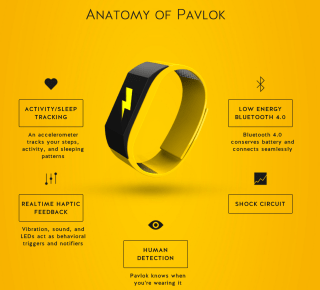I landed in Buenos Aires and grabbed the guitar from the Portal Del Sur hostel living room. I followed the the music playing dribbling from the raised speakers—some gorgeous Argentine music, probably tango or something—and I started to play along.
You see, when I was in high school, I learned guitar ‘so I’d be able to get all the girls.’ Sadly, I wasn’t the only one with that idea—in my Freshman dorm, more than 2/3 of the male students had brought guitars with them.
But, with every negative comes a positive. Sure, there was the serious negative of not getting laid as a Freshman, but on the plus side, my guitar skills improved rapidly. Having dozens of better-than-I-was musicians around helped me learn new songs and chords faster than I had alone. My skills progressed to a level I hadn’t before imagined. My biggest breakthrough, during the winter of my Freshman year, was learning the A-minor Pentatonic Scale, a common blues scale that allowed me to solo along with basically any song I heard on the radio.
I quickly got comfortable with this scale, and would start to practice small riffs and impress my friends.. One time, I played my favorite song for a girl in my sophomore dorm, and she was entranced. She asked me what it was called. “It’s by Led Zeppelin–it’s called ‘Babe I’m Going to Leave You.'” That was the first time I ever got slapped–apparently a feeling I’ve [never] [gotten] [over].
But once I learned that Pentatonic scale, my skills plateaued. Why learn more? What more was there to learn? I could solo, easily, to any song I heard—and it sounded pretty good, even if it was a little repetitive.
That was five years ago.
Fast forward to 2012, when I decided on a whim to take a ticket to Buenos Aires. I headed over to Portal Del Sur, and grabbed the guitar. As I played, several of the hostel-travelers sat down to listen and sing along. I felt like a king, like I was a rock star and the travelers were my horde of fans.
Two days later, I decided to visit a friend of mine, Anish (yes like Maneesh but without the ‘M’). I grabbed a spot on his couch and noticed a couple guitars, and started to solo.
“Not bad,” he said. “Watch this”
And he proceeded to blow my mind away.
His guitar skills were exponentially better than mine. His fingers moved with ease, up and down the fretboard, hitting notes that I had no idea would function in the song. And his speed was drastically faster than mine.
“What the hell!” I thought. “I thought I was the expert guitarist.”
But, you see, I had allowed myself to plateau. I reached a level I was happy with, and didn’t stretch, didn’t try to grow. Sure, I could impress a bunch of 20-year old hostel dwellers, but I couldn’t create new songs. I couldn’t solo along with expert songs. I didn’t know any other scales than my basic pentatonic.
But the worst part? I didn’t even know what I didn’t know. I thought I was an expert, but really, I was mediocre at best.
The Purpose of the Mentor
So Anish sat next to me, and started to teach me new scales. He showed me something called the [CAGED] system, which quickly allows you to play up and down the entire guitar fretboard.
Within a day, my ability to solo on the guitar was multiplied. Instead of being limited to just 4 frets, I now had the whole neck at my disposal. In just a couple sessions, my understanding of how to play guitar had been completely upheaved.
And it was then that I realized the importance of a mentor. A mentor is there to show you what you need to learn. A mentor will pinpoint your small mistakes and fix them. The penalty for not having a mentor? Potentially years of plateaued, wasted practice.
Anish taught me the system, and then he passed along the books and resources that he used to learn guitar. A mentor will know the tools and resources that will help you improve on your own.
And every day, Anish would make sure that I spent a little time practicing the new system before we started jamming together. A mentor makes it fun to learn, but also provides motivation and feedback. It’s never as much fun to play guitar alone as it is with a friend.
Finding the Right Mentor
I used to think that finding a mentor was a segmented task, that you must find someone to specifically agree to the job description of ‘being a mentor.’ But just in the same way that you would never ask someone to ‘be your girlfriend,’ I found that the process is far more fluid than a yes/no question.
Mentors are typically older than you, better than you at some skill that you want to improve, and are giving people. A mentor can be anyone from an instructor to one of your good friends.
The secret to finding a mentor is to hang out around people who might be potential mentors.
I spoke about this in my article How to Network With Influential People. Once you meet someone inspiring, your real task is to become their friend. Once you ask for advice, you’ve begun fluidly building a mentor.
What skills are you aiming to improve? Do you know someone in your circle who is at a higher level than you are? Spend time with them, and see if he or she will help you improve.
What are the skills you are trying to build? Have you had any mentors in the past? How do you find mentors
I’d love to know your feedback on those questions. Let me know in the comments.
For now, I’m back to practicing guitar. Those ladies aren’t going to impress themselves.






